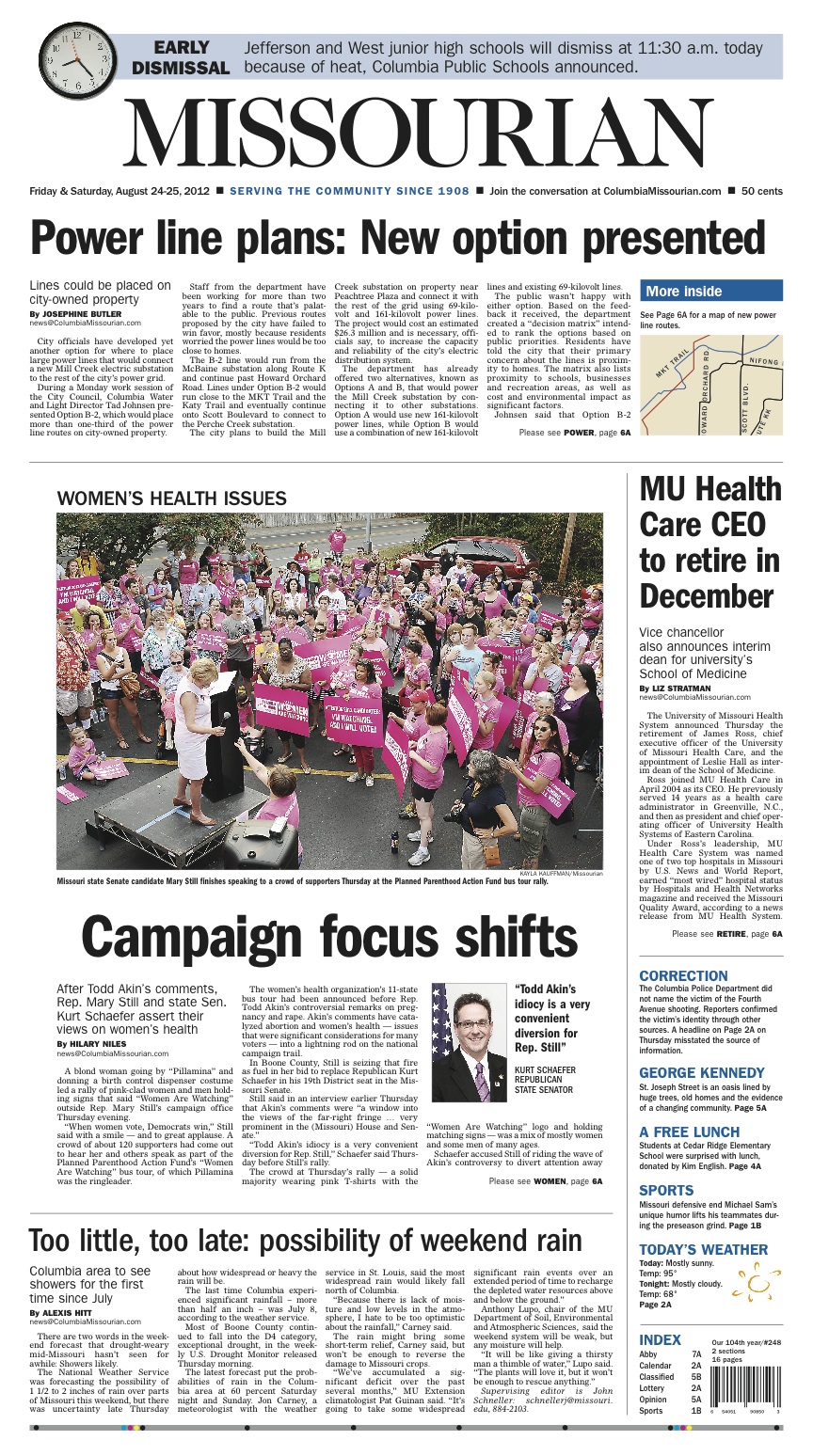Schaefer brings tenacity, ambition to second state Senate campaign
Kurt Schaefer doesn’t mind giving advice, but he’d rather be the one making decisions.
The incumbent 19th District senator learned this about himself after advising countless legislators and policy makers as a prosecutor in the Missouri Attorney General’s office.
“After a while, it could get frustrating to see them not taking our advice, especially on policy issues,” Schaefer said. In 2007, he decided to fix that. He’d try to make the laws himself.
Schaefer, a Republican, ran for state Senate in 2008 and beat the incumbent Democrat, Chuck Graham, whose favorability sank after his drunken driving arrest the previous October.
Now Schaefer, who has become chairman of the Senate Appropriations Committee, is running for re-election against Democrat Mary Still, a two-term 25th District representative in the Missouri House.
It is rare for a Republican to represent the Senate district that includes Columbia, which politically leans to the left. Schaefer, who won by fewer than 400 votes in 2008, was the first Republican to take the district since at least 1979. If he wins in November, it would be the first time a Republican would serve two terms in the 19th District seat, he said.
1962 words / The Columbia Missourian


